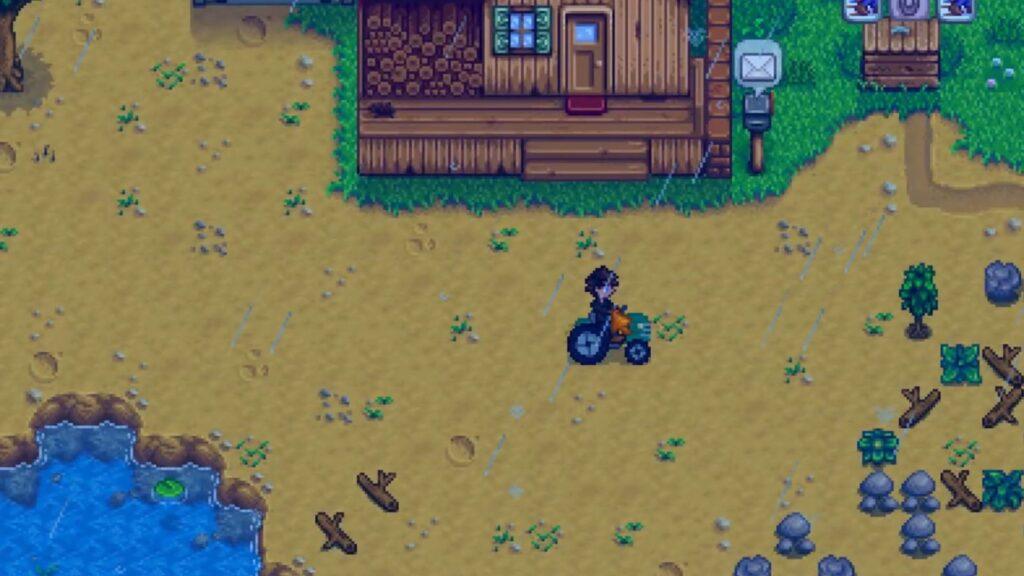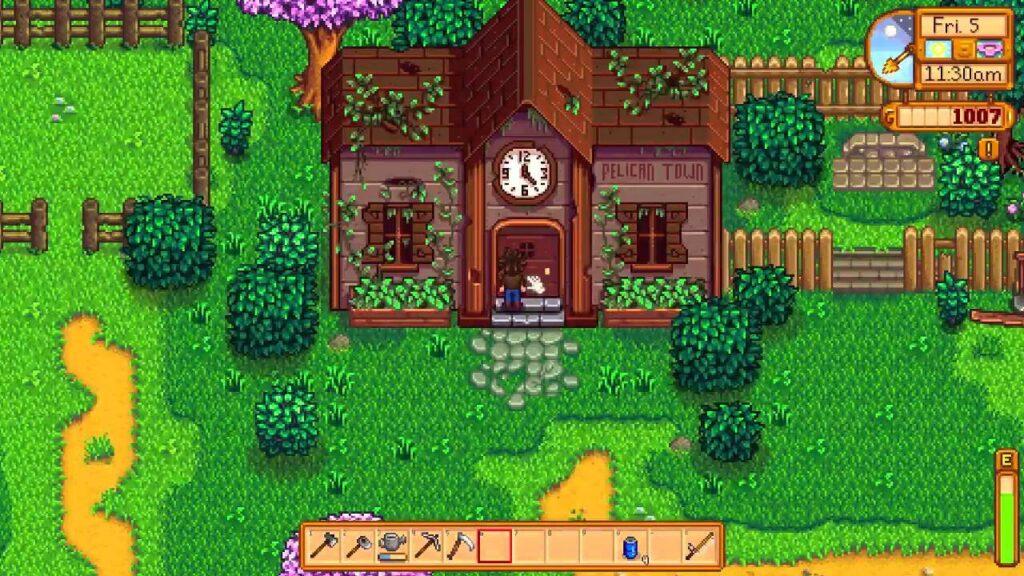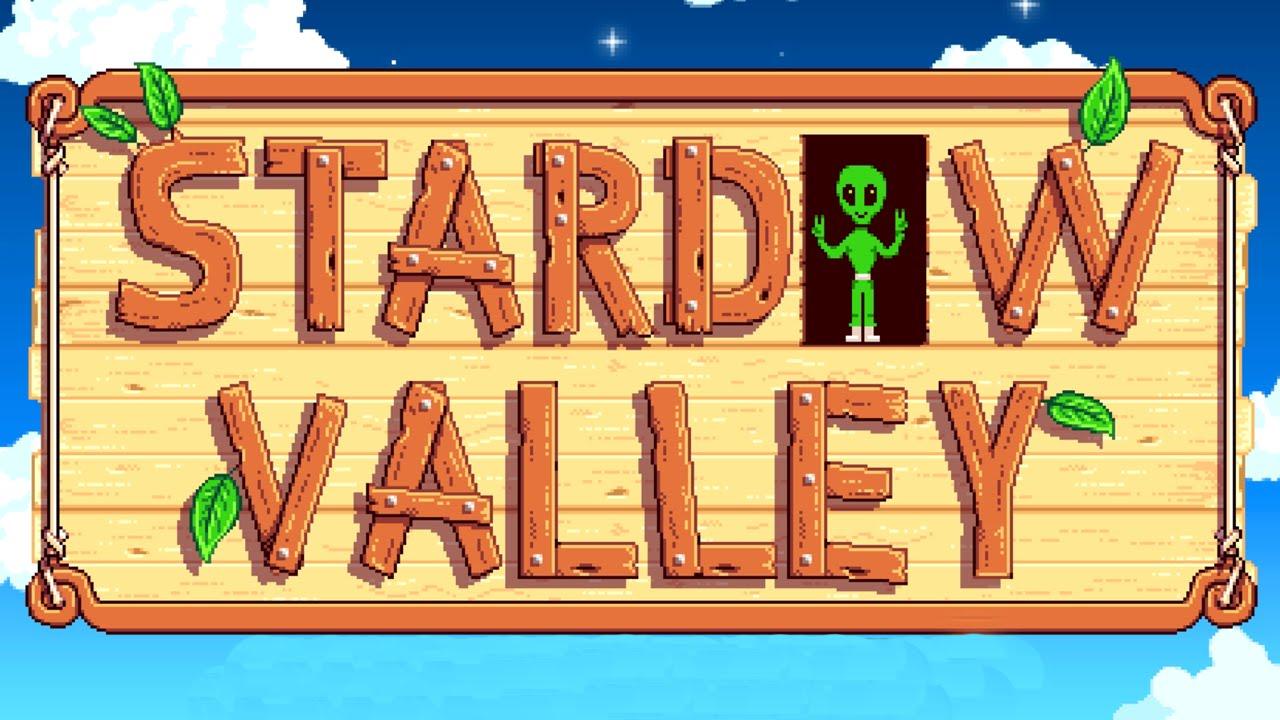Stardew Valley was a core comfort game for me during my freshman year. It was a relaxing, Friday night escape away from all the academic and social pressures that came with adjusting to college life. The simplicity of waking up, tending to your farm, and helping out a small community was all I could ever want (and maybe, in the distant future, I’ll get to retire and live a simple life like that). However, I soon found that the pace of things felt too slow for me. I wanted to plant and harvest more, be able to spend more time fishing, and wanted character relationships to progress faster. And why couldn’t I travel any faster without a horse? In reality, I would be walking much faster than my character.
This led me to install a number of mods, from small additions to a whole cheat menu. Suddenly, my Stardew life was great! I had a tractor that could plow down trees, weed, plant, water, and harvest with minimal reduction to my stamina. I was growing crops in bountiful amounts, and built a solid source of income that allowed me to spend time honing my fishing skills. If I needed just a little more time during the day or season, I could adjust the time. If I wanted to trigger a specific scenario or encounter, I could reach the conditions in significantly less time. Initially, it felt great to have nearly every part of the game within my grasp, ready to change to meet whatever goal I had in mind.
Yet, I grew bored over time. I had too many tools at my disposal, essentially removing all core obstacles in the progression of any relationships as well as the main story. Perhaps there was something more to the slow pace of things than I had realized.

Comforting in Being Anti-Capitalist, But Secretly Still Capitalist?
This week’s paper analyzing the presence of capitalist ideas in Stardew Valley was particularly interesting in how it broke down the presence along ludonarrative lines. Specifically for Stardew, it noted how the game’s mechanics and systems structure limited characters in ways that reinforced capitalist ideas. For example, the game required a significant sum of money to unlock the bus to the desert, so that you could collect more essential resources. The main “story” of restoring the community center was locked behind multiple improvements that you needed to save up for. To be successful in Stardew, you needed to make enough profit off of what you did (farming, fishing, crafting, etc) in order to improve your work and life conditions. You had to work your way up, as better tools let you do more work efficiently, allowing you to make more money and thus purchase larger improvements to repeat the cycle. After all that work, you save enough money to reach any of your personal goals, whether that be marrying an NPC, creating the farm layout of your dreams, or being the best monster slayer in (both) the mines.
I think that the realization of this hard, long term commitment of working tirelessly to get what I wanted was what led me to be frustrated with the pace of the game initially. It’s a game, why do I have to bring aspects of life that I want to escape from (namely, feeling like I have to constantly work and improve! I just want a break!)? The initial slow pace, coupled with this long term realization, made me feel like tasks in Stardew were an extension of the work I already had to do, which didn’t do much to make me feel that the game was an escape (other than the fact that it was in a fictional world). The paper really emphasized how these capitalist values are embedded into the system, one that many of us are familiar with and would likely not notice initially.
The narrative and world, or at least parts of it, would say otherwise. As the paper notes, interactions with certain characters (like Linus) or groups (Joja Mart, Joja Corporation) reveal how the game is against this capitalist-like cycle of work and profit. It notes that the premise of the game itself has anti-capitalist themes, as your character has decided to leave an office job in the city to instead go live on your grandpa’s farm. The idea of working and living simply on a farm is likely what attracts many players, including myself, to the game. At the same time, the game sucks you up into a reptitive (and time-sucking, if you really get into it) cycle of improving yourself and your farm. Is it ultimately still fun for you?

Maybe, Just Maybe, Taking It Slow Can Be Good
Part of me perhaps thought that by eliminating that cycle through mods, I could fully enjoy the game as an escape. Yet I found myself feeling bored after some time. Is this what it’s like to make it out of the work-profit cycle, to not have to worry about working tirelessly to keep a steady income? It felt like I lost the meaning of the things that I did. The game lost its narrative charm, and I only saw the numbers, the code, the mechanical structure that created this little fictional simulation.
I approach many games with a similar completionist mindset, wanting to maximize all my resources and optimize in order to get as much of, well, anything, as possible. Somewhat recently, I’ve tried to appreciate the “present” in games. I’ve tried not thinking about long term optimization, and just tried to focus on my task at hand, caring for things that I want to care about at the moment. I think that is the key to enjoying these games, regardless of what values may be encoded into the system, mechanics, narrative, or design. Perhaps the game is capitalist in the obstacles and system it presents you with. But you ultimately have the power to choose how you engage with it. Playing Stardew Valley simply, focusing on what crops I need to care for today, dealing with new weather conditions as they come, and allowing myself to be delighted by surprise character interactions is what feels most “anti-capitalist” to me. I can choose to take all the time that I want, playing however more or less. Choosing to stop, smell the (digital) flowers, and appreciate the lighthearted music is, for now, enough for me.




It is interesting that you talk about getting sucked into the capitalist work cycle in the game and feeling like you have to constantly optimize without being able to just sit back and enjoy the fun farm life like you thought you would. When my friends in my dorm saw me playing Stardew Valley, they could visibly see how stressed out I was getting about trying to optimize my farm and get the community center completed. They told me that the game should be a relaxing farming simulation and that I was playing the game wrong. But I’m glad that it clearly wasn’t just me. I feel like the game sucks you into a more stressful capitalist lifestyle than what you expect from the way it is designed and marketed.
Hi Annie,
Thank you for such a thorough blog post! I loved hearing about your own personal experiences with the game as a long-term player of it. I can definitely see the sentiment behind getting bored of it due to the slow pace or how it can just become a game of optimization for money– when we already have to do that in real life. I think that could be one of the flaws of a game build on capitalistic ideology, for sure! I think the usage of capitalism within the game is fitting for an incentive to progress though, because it gives you a metric for how far along the game you are, and pushes you to expand your own money-making schemes.
We’ve talked a bit about the game aesthetic of abnegation/submission, which i think most applies to Stardew Valley. Do games have to be “fun”? Or can they embody a different space – calming, shocking, explorative, etc? In the same way that a movie doesn’t always have to be a “fun” experience, I think a game can also be more than “fun”. To me, Stardew Valley drives me to replay because of the relaxing atmosphere and fantasy that it embodies.